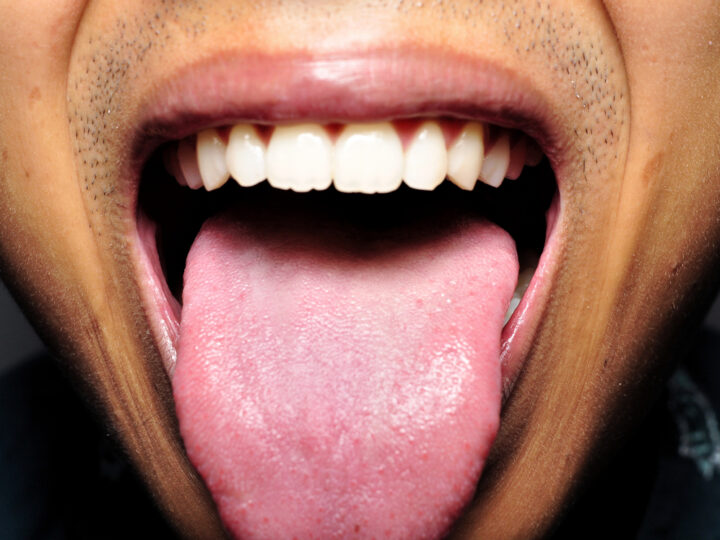TREATING A COUGH WITH TCM
Natural Options The Kick That Cough

Have you ever had a cough that overstayed its welcome? Even the tiniest tickle in your throat that won’t quit can drive you nuts. If you’ve tried Western medicine tactics that aren’t working, Traditional Chinese Medicine (TCM) can help. Let’s get into it.
What is a Cough?
To start, let’s do a cough crash course. A cough is defined as the way your body responds when something is irritating your airway or throat. Whatever is irritating your body will stimulate a nerve that tells your lungs to push out air to get the irritant out. Coughing is totally normal most of the time, but when it won’t go away it becomes frustrating and can mean there’s an underlying problem.
 Coughs typically fit into two categories, wet and dry. When you have a ‘wet,’ or productive cough, you’re producing phlegm or mucus from the lungs. If you’ve had a wet cough, you know exactly what this feels like.
Coughs typically fit into two categories, wet and dry. When you have a ‘wet,’ or productive cough, you’re producing phlegm or mucus from the lungs. If you’ve had a wet cough, you know exactly what this feels like.
The other type of cough is a dry cough. A dry cough won’t cause anything to come up, and you’ll typically feel like there’s a tickle in your throat. If you have a dry cough, you can experience coughing fits that won’t stop, and it can be quite annoying.
How Does TCM Look at Coughs?
It’s important that we discuss how TCM looks at coughing. If you’re familiar with TCM, you know that a practitioner looks at the person as a whole, and not just the problem at hand. This also goes for coughing.
In the world of TCM, there are two ways it’s believed that a cough can develop in the body.
External Pathogens
 TCM can look at external pathogens that could cause a cough. Since your lungs are connected to the world through your mouth and nose, your lungs are the most vulnerable to external pathogens from the outside world so do as Grandma always says and bundle up in the cold!
TCM can look at external pathogens that could cause a cough. Since your lungs are connected to the world through your mouth and nose, your lungs are the most vulnerable to external pathogens from the outside world so do as Grandma always says and bundle up in the cold!
External pathogens are bacteria that come from the outside elements such as weather changes. Your lungs essentially have an open door to the elements, and can be exposed to all sorts of potential threats. A cough that’s caused by external pathogens may come on very suddenly. Think of a coughing fit that only lasts a minute or so.
Internal Health Issues
One way TCM practitioners believe coughs develop are internal health issues. Your lungs are part of the yin organs, which are responsible for regulating the qi, blood and bodily fluids.That means your pesky cough may be caused by internal dysfunction of the organs. If your lungs aren’t working properly, it can cause an imbalance in the qi, which could be the reason you’re coughing.
Another organ that could be causing your coughing according to TCM is the spleen. When your spleen isn’t working properly, it can produce phlegm that may attack the lungs which causes a cough. Your liver could also be causing your cough according to TCM. Liver dysfunction can also cause an interruption in the qi flow which could cause a cough.
Your kidneys and lungs work together so you can breathe properly. When your kidneys aren’t functioning well, you can also experience breathing issues such as a cough.
Coughs caused by internal imbalances are likely to come on gradually, and you won’t realize it until it’s gotten bad. This is also how a chronic cough may start.
Treating a Cough With TCM
Now that we know a bit about how TCM thinks of coughing, it’s time to treat that annoying itch in your throat. The good news is that there are several TCM remedies that can help you get rid of a cough, whether it’s chronic or a brief tickle. Keep in mind that you should consult with your TCM practitioner to determine the root cause of your cough before treating it.
When your TCM practitioner examines you, they’ll ask you about the cough. They’ll want to know how frequent it is, what time of day it’s happening and whether it’s wet or dry. They’ll also need to know if it’s happening alongside other symptoms. That way, you’ll be able to treat your cough efficiently with TCM.
Acupuncture for Cough
 One way TCM can treat a cough is by addressing acupoints in the body. According to a study, acupuncture produced a 90% total treatment effective rate as opposed to drug therapy with an 80% effective rate. There are a couple acupoints that are good for relieving a cough in TCM, including:
One way TCM can treat a cough is by addressing acupoints in the body. According to a study, acupuncture produced a 90% total treatment effective rate as opposed to drug therapy with an 80% effective rate. There are a couple acupoints that are good for relieving a cough in TCM, including:
Lung 7
As the name suggests, Lung 7 is a great acupoint for assisting with the lungs. This one is located on the wrist on the side by your thumb. Use this acupoint for coughing along with the common cold, too.
Ding Chuan
This acupoint is located right below where your neck and shoulders meet. Ding Chuan is helpful for wheezing coughs, asthma and other chronic coughing conditions, plus hiccups.
TCM Herbal Remedies for Cough
Along with acupuncture, TCM herbal remedies are an excellent way to remedy a cough. In fact, research has been done to prove their effectiveness.
Ginger
We love ginger in TCM. If you have a cough due to a respiratory issue like bronchitis, ginger is going to be your best friend. This Chinese herb has anti-inflammatory properties and is also known for being an antiviral as well. So, when you’re feeling sick, brew some ginger tea to get rid of that cough.
Turmeric
 If you’re feeling the tickle in your throat, try turmeric. Turmeric is another anti-inflammatory herb full of antioxidants. You can use it as a powder to add to dishes, or take it as a supplement to knock out that itch in your throat.
If you’re feeling the tickle in your throat, try turmeric. Turmeric is another anti-inflammatory herb full of antioxidants. You can use it as a powder to add to dishes, or take it as a supplement to knock out that itch in your throat.
Chuan Bei Mu/Fritillaria
This herb dissolves phlegm and clears heat, while also nourishing and moistening Lung Yin. It can be taken along with an Asian Pear and honey for a lingering dry cough. You would soak, crush and cook 8-16 tiny raw bulbs with the pear, or around 1 – 2 gram(s) per pear.
Gua Sha
Gua Sha is the TCM practice of using a smooth tool to stroke downward on your skin. You can have your TCM practitioner do it for you, or do it at home. For a cough, it’s suggested that you practice gua sha on your chest to feel relief.
Final Thoughts
To sum it up, treating a cough with TCM has many benefits. Try one of these methods out today to get rid of that pesky thing!
Newer
Infertility Treatments With TCM
Older
Eastern Medicine Tips and Tricks for When it Gets Cold Out
Comments (0)
Leave a reply
You must be logged in to post a comment.




